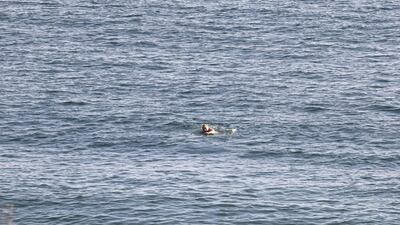Explained: what is the G7 and why is the 2021 summit in Cornwall?
G7 countries took major steps to address the resilience of the planet as leaders met in the coastal Cornwall region of England where a new Blue Planet Fund was launched to help protect the ocean.
The G7 is to endorse a Nature Compact at a meeting on Sunday to halt and reverse biodiversity loss by 2030. The commitments in the agreement include supporting a global target to conserve or protect at least 30 per cent of land and 30 per cent of ocean globally by the end of the decade.
Meeting at the Carbis Bay resort the leaders were urged on by environment focused community groups. The UK-backed £500 million ($705.3m) fund is designed to support countries tackle unsustainable fishing, protect and restore coastal ecosystems like mangroves and coral reefs, and reduce marine pollution.
Some of the main beneficiaries are Ghana, Indonesia and Pacific island states.
“Protecting our planet is the most important thing we as leaders can do for our people. There is a direct relationship between reducing emissions, restoring nature, creating jobs and ensuring long-term economic growth," Mr Johnson said.
Formal agreement is likely come in a midday session that will be addressed by Sir David Attenborough, the broadcaster and campaigner. Officials said the G7 are also expected to commit to almost halve their emissions by 2030 relative to 2010.
In a pre-recorded video message Mr Attenborough gave a bleak assessment of progress on arresting the threat to the planet.
“The natural world today is greatly diminished," he said. "That is undeniable. Our climate is warming fast. That is beyond doubt. Our societies and nations are unequal and that is sadly is plain to see.
“But the question science forces us to address specifically in 2021 is whether as a result of these intertwined facts we are on the verge of destabilising the entire planet? If that is so, then the decisions we make this decade - in particular the decisions made by the most economically advanced nations - are the most important in human history.”
The summit is also to agree on the Carbis Bay declaration which sets down recommendations on how governments and others can quickly respond to new outbreaks of infectious diseases. To prevent future pandemics it sets up new research capabilities as well as frameworks for developing new treatments.
"The first 100 days after the identification of an epidemic threat are crucial to changing its course and, ideally, preventing it from becoming a pandemic," a statement from host country UK said.
The declaration said countries would focus on slashing the time taken to develop and licence vaccines, treatments and diagnostics as well as support for reforming and strengthening the World Health Organisation.
In the name of global biosecurity, Mr Johnson has challenged governments to back a new Global Pandemic Radar as an early warning system.
































